Looking Back: What I’ve Learned Along the Way
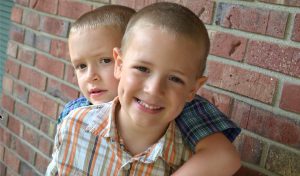 As I think back to the beginning of our life with autism, all I can say is that it has been one rollercoaster ride after another. I have fallen and gotten back up, time and time again. I’ve learned more than I ever thought would be possible from two little boys 30 years younger than me. It hasn’t been easy, but through strength and courage we continue to move on, each and every day. It’s really been what we have learned along the way that has gotten us to where we are today.
As I think back to the beginning of our life with autism, all I can say is that it has been one rollercoaster ride after another. I have fallen and gotten back up, time and time again. I’ve learned more than I ever thought would be possible from two little boys 30 years younger than me. It hasn’t been easy, but through strength and courage we continue to move on, each and every day. It’s really been what we have learned along the way that has gotten us to where we are today.
Hope is such a simple word, yet a huge part of our life. I’ve learned the real meaning of hope and how to cling to it every day.
I first realized that I had no other option than to turn to hope for a better tomorrow shortly after Andrew’s second birthday. Andrew was two and Trenton was three. I had been sleep-deprived for almost three years by then, and the life I knew before autism was no longer in the rearview mirror. It was gone forever. I knew in my heart on that particular day that Andrew had autism. My mom had sent me a picture of Andrew’s very long line of random items while she was watching him. He didn’t want to do anything else that day except line items up. In that particular moment, I stopped what I was doing and mourned for Andrew. Then, a few minutes later, I turned to hope.
I never know what each day will bring or what challenges we will face that day. Some days are harder than others and some challenges are way more exhausting than others. However, we continue to hope for the best. This was very hard to do after Trenton’s diagnosis, when I was trying to adjust to both the new diagnosis and our new life. But I learned that, if you can get past that point in your life and focus on hope, you will have a much brighter outlook on your new life despite the challenges.
While clinging to hope, I’ve learned that life is really all about the small things. They bring the biggest and brightest smile to not only my face, but to my sons’ faces as well. The first time I truly realized how amazing the small things were was the day Trenton wanted a pancake. He was three years old and I was trying hard to get him to use a picture exchange system. He was upset and I couldn’t figure out what he wanted. Then, he suddenly showed me the picture of a pancake. As you can guess, those pancakes were made immediately! He ate one and we all cheered! He had communicated what he wanted to eat to me for the first time.
That was the day that I realized my life would truly be all about the small things from then on. At one time in my life, I would have taken that for granted. But now, I don’t take anything for granted, not even the small things.
As our journey goes on, I keep learning. I’ve learned so much along the way. I look forward to each and every thing that the boys teach me. Even though we have tiresome challenges daily, every single moment is truly amazing and beautiful with them. Our hope for a brighter tomorrow is one of the keys to helping us see just how beautiful we can make our own unique and challenging life better.


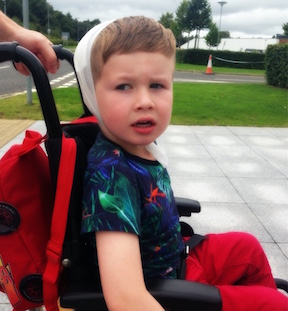
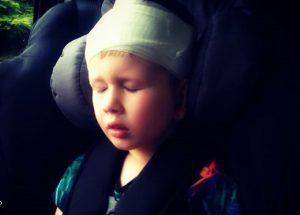 A high pain threshold can be common when your child has autism or, in fact, any special need. And it can be both a blessing and a curse.
A high pain threshold can be common when your child has autism or, in fact, any special need. And it can be both a blessing and a curse.
 I think I speak for most parents of autistic children or children with autism when I say the biggest lesson I have learned is one involving friendship. (I’m never really sure how to word because both ways can, and have, upset parents in the Autism/Autistic Community. So I will use both.)
I think I speak for most parents of autistic children or children with autism when I say the biggest lesson I have learned is one involving friendship. (I’m never really sure how to word because both ways can, and have, upset parents in the Autism/Autistic Community. So I will use both.)
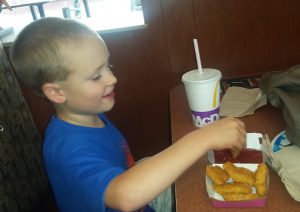 Food can be a very challenging part of your child’s ASD diagnosis. It is for one of my sons. He has a very limited menu and it continues to stay that way.
Food can be a very challenging part of your child’s ASD diagnosis. It is for one of my sons. He has a very limited menu and it continues to stay that way.
 I guess you could say I have few expectations for the hopes of my child. They’re not going to be the same, day to day or week to week, let alone year to year or decade to decade. Right now, at this very moment in time, the only hope that I have is that she can learn to understand and control her emotions.
I guess you could say I have few expectations for the hopes of my child. They’re not going to be the same, day to day or week to week, let alone year to year or decade to decade. Right now, at this very moment in time, the only hope that I have is that she can learn to understand and control her emotions.
 It’s been just over a year since my 7-year-old daughter’s high-functioning autism diagnosis, but the writing was on the wall long before it was official. Between autism and having three kids in four years, it feels like I’m a completely different person than the one who embarked on motherhood in 2009. I’m still very much a novice training on the job, and when it comes to autism I’ve had to learn plenty of lessons the hard way. Here are a few of them.
It’s been just over a year since my 7-year-old daughter’s high-functioning autism diagnosis, but the writing was on the wall long before it was official. Between autism and having three kids in four years, it feels like I’m a completely different person than the one who embarked on motherhood in 2009. I’m still very much a novice training on the job, and when it comes to autism I’ve had to learn plenty of lessons the hard way. Here are a few of them.
 I am a lot of things: daughter, sister, wife, social worker, author, and mother to two boys. Becoming a mother to a child with autism changed me in a million different ways, mostly for the better. For almost a decade, I have struggled to be the best parent I can for my son and to help support him in being successful, as well as be there for my other son. I don’t always balance it well, but I always try.
I am a lot of things: daughter, sister, wife, social worker, author, and mother to two boys. Becoming a mother to a child with autism changed me in a million different ways, mostly for the better. For almost a decade, I have struggled to be the best parent I can for my son and to help support him in being successful, as well as be there for my other son. I don’t always balance it well, but I always try.
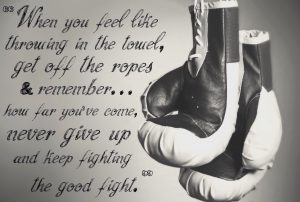

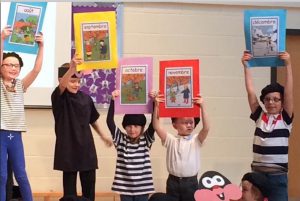

 When a friend or relative’s child is diagnosed with autism, it can be awkward and uncomfortable. Many people just don’t know how to respond.
When a friend or relative’s child is diagnosed with autism, it can be awkward and uncomfortable. Many people just don’t know how to respond.